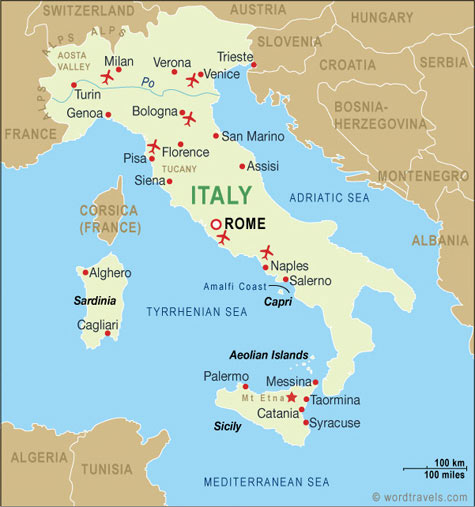Comatose woman's case sparks Italian constitutional row
 Rome - In a race against time, Italy's government is expected to table in parliament early next week a controversial bill to re-connect a life-support system to a comatose woman at the centre of a right-to-death debate.
Rome - In a race against time, Italy's government is expected to table in parliament early next week a controversial bill to re-connect a life-support system to a comatose woman at the centre of a right-to-death debate.
The Senate, parliament's upper-house, is scheduled to begin debating the bill next Tuesday, Senate speaker, Renato Schifani said Saturday.
By then, medical experts say, Eluana Englaro, will have started to manifest muscle spasms and other serious symptoms related to the suspension, which began Friday, of nutrients and water previously supplied to her body through tubes.
The case of the 38-year-old Englaro, who has spent the last 17 years in a vegetative state after a car accident, has reignited debate in Catholic Italy over euthanasia and its legal technicalities.
Prime Minister Silvio Berlusconi on Friday announced the governmentwould press forward with a law after Italian President Giorgio Napolitano refused to sign a government decree overturning a court order allowing the termination of Englaro's life.
Englaro's father, Beppino, who has for over a decade battled in Italy's courts for what he says is his daughter's "right-to-die with dignity", condemned the government's decision.
Napolitano who as head of state, has a say in constitutional matters, said the government through its decree on Eluana, was interfering with a ruling made by Italy's independent judiciary.
But Roman Catholic Church officials, conservative politicians and others who have campaigned to keep Eluana alive, say the court order amounts to euthanasia, a procedure not permitted under Italian law
Beppino, earlier this week had his daughter moved to a hospice in the north-eastern city of Udine after doctors there said they would be willing to carry out a court order allowing the termination of her life.
Since a July 2008 ruling by Italy's top court, the Cassation, upheld Beppino's request to allow his daughter to die, several government officials have threatened disciplinary action against clinics and doctors willing to carry out the order.
While voluntarily terminating a life is forbidden, Italy's constitution also grants patients the right to refuse medical treatment.
Some activists are campaigning for legislation allowing the introduction of "living wills" whereby people can state what type of medical treatment they wish to receive. (dpa)